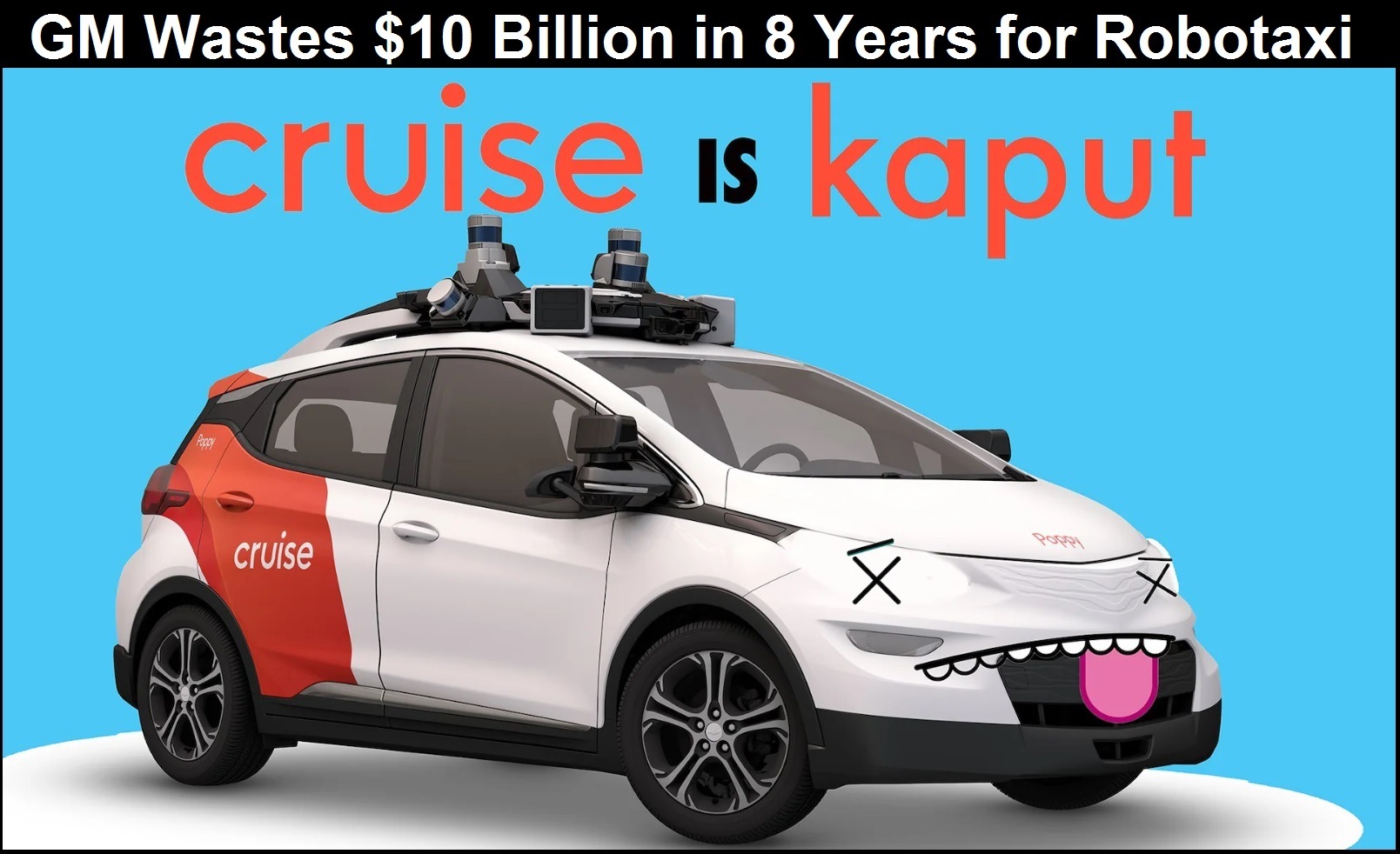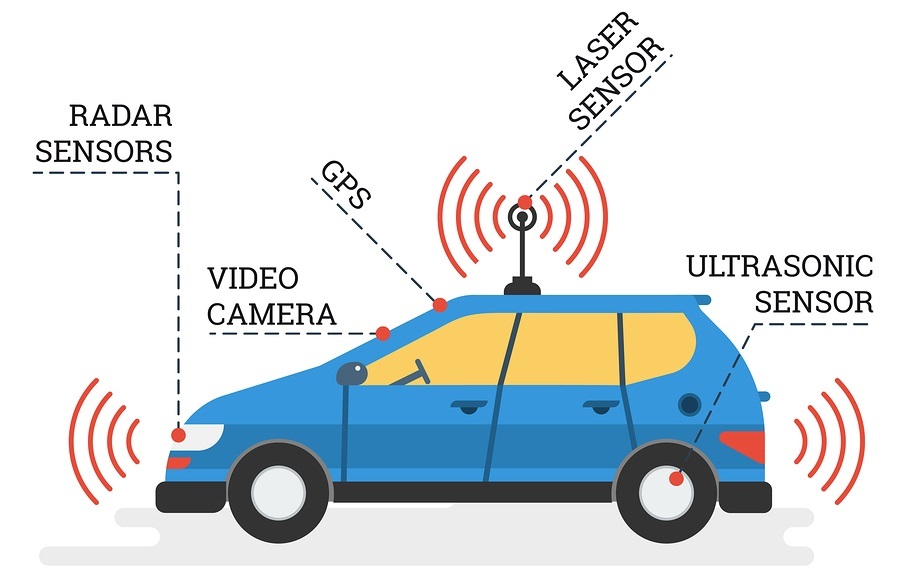GM Ends Cruise Robotaxi After Wasting $10 Billion in 8 Years – Wall Street Rejoices and Continues to Invest in Driverless Vehicles Which Still Do Not Exist
It was announced this week that General Motors became the latest automobile manufacturer to get out of the driverless car business after wasting $10 billion over 8 years for their "Cruise" robotaxis. GM joins Ford, Volkswagen, and others who have abandoned driverless vehicle development after wasting $billions over the years, only to realize that if such technology will ever be possible at a level that is profitable, it is still many years away in the future. How did Wall Street receive this news that yet another major automobile manufacturer was abandoning driverless robotaxis? They celebrated and started buying stock in the few remaining companies that are still trying to develop this driverless technology, as the NASDAQ topped 20,000 for the first time yesterday. The reason that was given for this surge in Big Tech stocks still invested in driverless vehicles yesterday, in spite of the news that GM was ending their robotaxi business, was that the robotaxi market was "too crowded". The remaining companies invested in robotaxis are mainly Google, Amazon, and Tesla. Do any of these companies currently have a successful robotaxi business that they are no longer wasting money on, but actually turning a profit? No. Tesla currently has ZERO robotaxis on the road, with the first ones being promised in either 2025 or 2026, and Amazon just recently received approval to put their robotaxis, Zoox, on the streets of San Francisco, but don't expect to offer rides to the public there until later in 2025. The autonomous vehicle market was reported at 208 billion in revenue in 2023, and is estimated to be 282.2 billion in 2024, and is anticipated to more than double in 2025, reaching 428.3 billion. And this "revenue" is what investors are investing into this technology, NOT what it is earning in the marketplace. To give this massive amount of money being wasted on driverless vehicles some perspective, total imports of products from China into the United States was $501.22 billion in 2023. That means that the expected money to be spent on driverless vehicles next year will be about 85% of the money spent on importing products from China. That means everything Americans buy from retail stores like Walmart, Target, Home Depot, Best Buy, etc., and a whole lot of other things that we import from China that keep our economy running, is almost equal to the money being spent on driverless technology, not to mention the hundreds of billions spent on other types of AI technology. Is that a sustainable economy? Wouldn't the rational thing to do for national security be to STOP the technocrats from ruining this country, by implementing regulations to STOP them from putting these dangerous vehicles on America's public, tax-funded roads? Well, that's not President-elect Donald Trump's plan. His plan is to ABOLISH regulations that are holding Big Tech back, and then implement tariffs on China-imported products that actually have REAL value and are purchased by Americans every day, making them much more expensive. What could go wrong?





